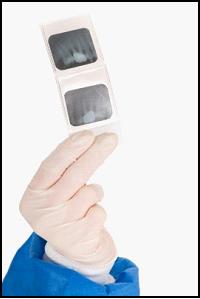In this article we discuss the basics of a routine checkup. This article aims to help readers get a better sense of what they can expect from a visit to the dentist’s chair and what they can do to improve their standard of oral health.
Many people avoid what should be their regular visit to the dentist’s office either because of a relatively common anxiety or simply due to a lack of care. However new teeth experts in Chicago can ensure you that the dentist’s chair does not have to be a scary place that leaves you with terrible anxiety. In fact, experienced and compassionate dentists go out of their way to ensure your level of comfort and ease while they work towards improving your oral health. In this article, we will give you a clearer idea of what you can expect from a routine check-up and why this is a vital part of maintaining oral health.
Routine Checkups: What to Expect

Ideally you should be visiting your dentist and oral hygienist at least once a year; twice is better. During your routine checkup, your dentist will inspect your teeth and gums for signs of tooth decay, gum disease and other oral health problems. If any of these problems are present, your dentist will recommend the appropriate course of treatment for your specific situation.
Routine checkups also include a professional teeth cleaning. During this procedure, your oral hygienist will clean your teeth using a small metal tool that will scrape away tartar (a hard mineral build-up) from the crowns of your teeth and just beneath the gum line. After this step your oral hygienist will floss, polish and coat your teeth using fluoride.
Routine Checkups: Getting a Closer Look
In order to get a greater sense of the state of your teeth and gums, modern dentistry makes use of incredible technology that enable healthcare professionals to detect problems at beneath the gum line. All-On-Four dental implants specialists in Chicago say that your annual check-up should include X-rays, which allow your dentist to inspect the health of your tooth roots and jawbone. This will help him/her to determine any signs of infection or decay that aren't visible to the naked eye.
Your dentist may also recommend placing protective sealant on the chewing surface on the back teeth in order to prevent them from developing cavities. Sealants help to guard your teeth from food debris and prevent bacteria from getting stuck in the deep grooves and cusps of the teeth, especially the molars.
Routine Checkups: Finishing Touches
During your routine checkup, your dentist may apply a fluoride solution directly to your teeth in order to keep them strong and cavity-resistant. It is very important that you disclose your medical history and existing conditions with your dentist. Your dentist will be able to determine the safest courses of treatment for your oral health care in combination with your current general health. If you are prone to infections, it may be necessary for you to undergo a course of antibiotics before having any dental work done. Your dentist may also inquire about your diet, in order to determine whether or not you are getting enough of all the right minerals and vitamins.
If your dentist finds that you have active gum disease or tooth decay, he or she will advise you about your oral hygiene routine and what you can do in order to fight the problems. New teeth experts in Chicago advocate the daily discipline of a good oral hygiene routine coupled with regular routine checkups as the best way to maintain an excellent standard of oral health.

No comments:
Post a Comment